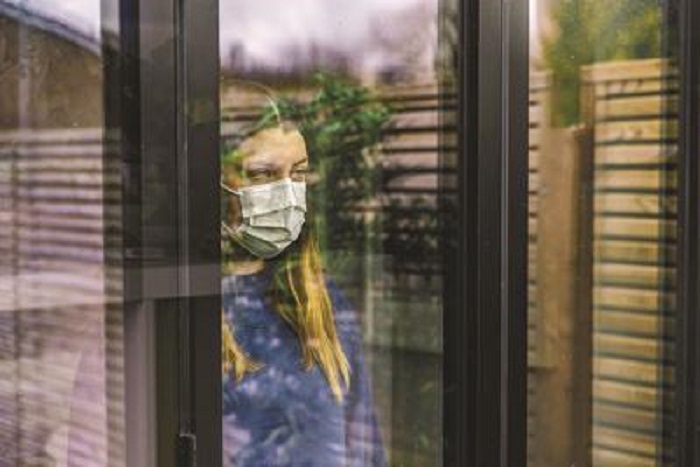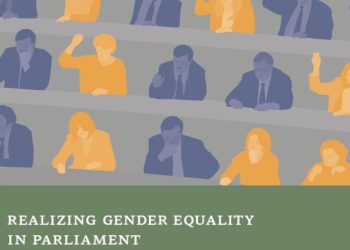The pandemic affects men and women differently
The global lockdowns put in place to battle the spread of the novel coronavirus has made everyone equal: citizens of both developed and developing countries as well as those of low-income countries are all staying home. The only exception is Sweden where educational institutions have been operating to this day. They say the state trusts in its citizens’ high sense of responsibility. And regardless of the level of development of institutions in place to support women, today women have been left alone facing a number of issues. The Atlantic has covered this topic in its article “The Coronavirus Is a Disaster for Feminism.” Before we get to the contents of said article, here is a snippet from the daily COVID-stricken life of Armenian women…
Armenian women post their day-to-day lives on social media boasting how they’re able to juggle it all between remote online work, care for kids and organization of their classes remotely, preparing their food, feeding them, and coming up with a bunch of other tricks to keep the kids entertained.
The other day during an online training through Zoom, one of the women from our group shouted “oh my…” when milk had spilled all over the gas stove, then one of them was forced to log out early because the baby had woken up from the nap and she had to cloth him, then another one had to leave to help a child get connected to her online class…
In the meantime, while most of the men complain of boredom, look for good films and play online games to kill time, women’s “engines” are in overdrive to withstand all the challenges.
During the lockdown, many remembered scientists and authors of global inventions.
“Enough already. When people try to be cheerful about social distancing and working from home, noting that William Shakespeare and Isaac Newton did some of their best work while England was ravaged by the plague, there is an obvious response: Neither of them had child-care responsibilities, writes The Atlantic.
English poet and playwright William Shakespeare wrote his King Lear, Macbeth, Antony and Cleopatra dramas during the quarantine in time of the plague. In 1606, the theatrical industry was in ruins, and realizing that he no longer had a permanent job but instead had a lot of time, Shakespeare started to write. Decades later, in 1665, England had one of the biggest outbreaks of the bubonic plague. After classes at the University of Cambridge were cancelled, 20-year-old Isaac Newton was forced to return home and spend is free time on self-education and research. This is when his theory of gravitation was born.
But…there is a big but here. While Shakespeare was advancing his career in London, his family lived in Stratford-upon-Avon. During the lockdown, his wife and two daughters lived far from him. Newton was never married, nor did he have children, and spent most of his adult life as a fellow at Cambridge University, where his meals and housekeeping were provided by the college.
Therefore, to women having multiple childcare responsibilities the coronavirus outbreak was hardly going to give the opportunity and time to write King Lear or develop a theory of optics. And the joke about the mother of four who on the third day of the lockdown invented a vaccine against the coronavirus is merely a joke, which, too, aims to emphasize the level of the overload women are forced to bear…
In reality, a pandemic magnifies all existing inequalities, even as politicians insist this is not the time to talk about anything other than the immediate crisis. Working from home in a white-collar job is easier. However, as Helen Lewis, the author of The Atlantic article fears, employees with salaries and benefits will be better protected; self-isolation is less taxing in a spacious house than a cramped apartment. But one of the most striking effects of the coronavirus will be to send many couples back to the 1950s. Across the world, women’s independence will be a silent victim of the pandemic…
Now the world is going through not only public health but also economic crises. Normal life has been put on hold for three months and in some cases for even longer periods, which makes layoffs imminent. At the same time, school closures and household isolation are moving the work of caring for children from the paid economy—nurseries, schools, babysitters—to the unpaid one. Previously, couples would be able to both work because someone else would take care of their children. Now, they decide which one of them will have to force that “punishment.”
The West failed to learn from history: the Ebola crisis in three African countries in 2014; Zika in 2015–6; and recent outbreaks of SARS, swine flu, and bird flu. Academics who studied these episodes found that they had deep, long-lasting effects on gender equality.
Julia Smith, a health-policy researcher at Simon Fraser University, said that everybody’s income was affected by the Ebola outbreak in West Africa, but men’s income returned to what they had made pre-outbreak faster than women’s income. The distorting effects of an epidemic can last for years, Clare Wenham, an assistant professor of global-health policy at the London School of Economics, has said. “We also saw declining rates of childhood vaccination during pandemics. Later, when these children contract preventable diseases, their mothers will have to take time off work,” the assistant professor had pointed out.
In a related manner, UNICEF recently warned that “As the pandemic progresses, critical life-saving services, including immunization, will likely be disrupted, especially in Africa, Asia and the Middle East, where they are sorely needed. The message is clear: We must not allow lifesaving health interventions to fall victim to our efforts to address COVID-19.”
The authors of The Atlantic article point out that during the pandemic patients, self-isolating people, children kept home from school all need looking after. All this looking after—this unpaid caring labor—will fall more heavily on women, because of the existing structure of the workforce. For instance, according to the British government’s figures, 40 percent of employed women work part-time, compared with only 13 percent of men.
The gender gap within the labor force in Armenia is particularly high in the 35-49 age group. According to the studies of the National Statistical Committee, this mostly has to do with the family responsibilities of women, including pregnancy, birth, childcare, household chores, etc.
The picture is the same everywhere in the world. Single parents face even harder decisions: While schools are closed, how do they juggle earning and caring? The article cites British statistics, according to which, a quarter of families are headed by a single parent, more than 90 percent of whom are women. Closed schools make their life even harder.
We have the same problem, and we won’t be exaggerating if say it’s worse. In comparison, it should be noted that in 2018, most households in Armenia were headed by men (65.7%), while 34.3% of households had female heads (37.7% in urban areas, and 27.8% in rural regions).
Ebola had other negative effects for women, i.e., many girls dropped out of school, number of adolescent pregnancies increased, and more women died in childbirth because resources were diverted elsewhere.
Authors of the article warn that the world must not make the same mistakes. Things that are currently being done in many countries will eventually affect millions of women and girls in the future during potential new outbreaks.
The coronavirus crisis will be global and long-lasting, economic as well as medical. However, it also offers an opportunity. This could be the first outbreak where gender and sex differences are recorded, and taken into account by researchers and policy makers.









